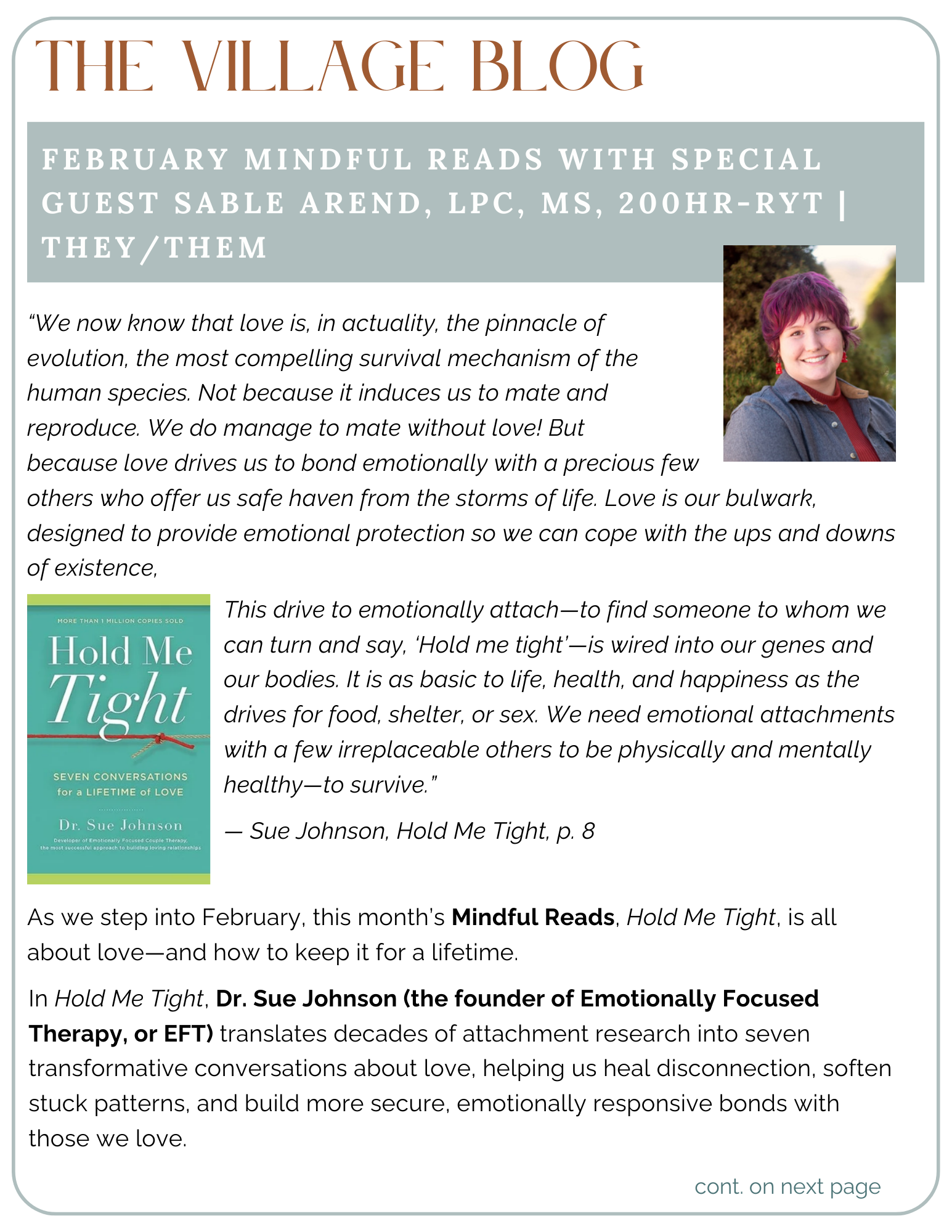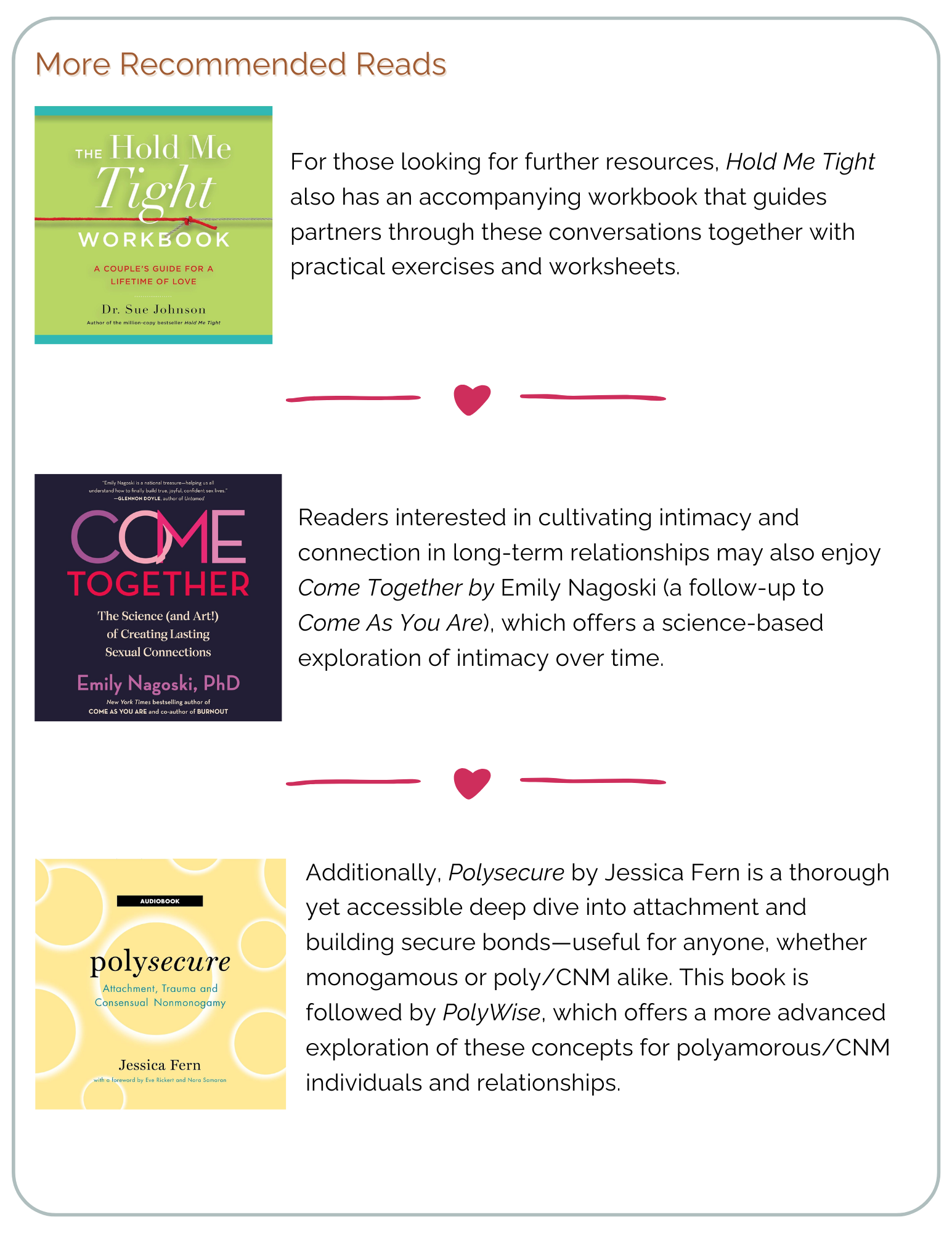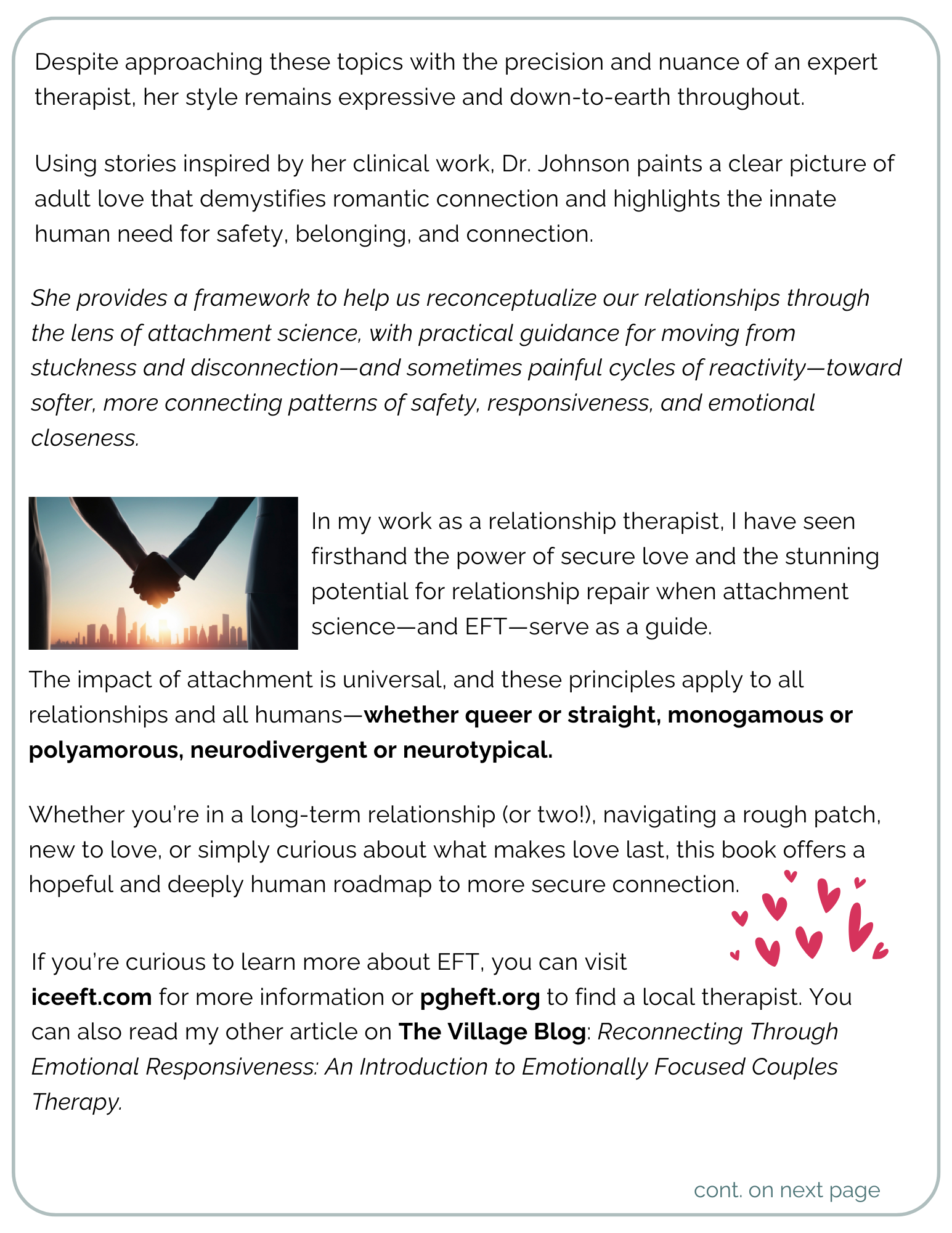Mindful Reads: February Edition
/


We’re offering these gentle, easy-to-read downloads as little pockets of wisdom you can print, save, and return to whenever you need a moment of clarity or support. Simply click the button below to download the resource that speaks to you.🌿
Village - West End
68 Wabash Street, Suite 100, Pittsburgh, PA 15220
Village - Shaler
1407 Mt. Royal Blvd., Glenshaw, PA 15116
T: 412.455.6890 | F: 412.455.6891
Contact Us
Copyright 2024 Village Center for Holistic Therapy, P.C.